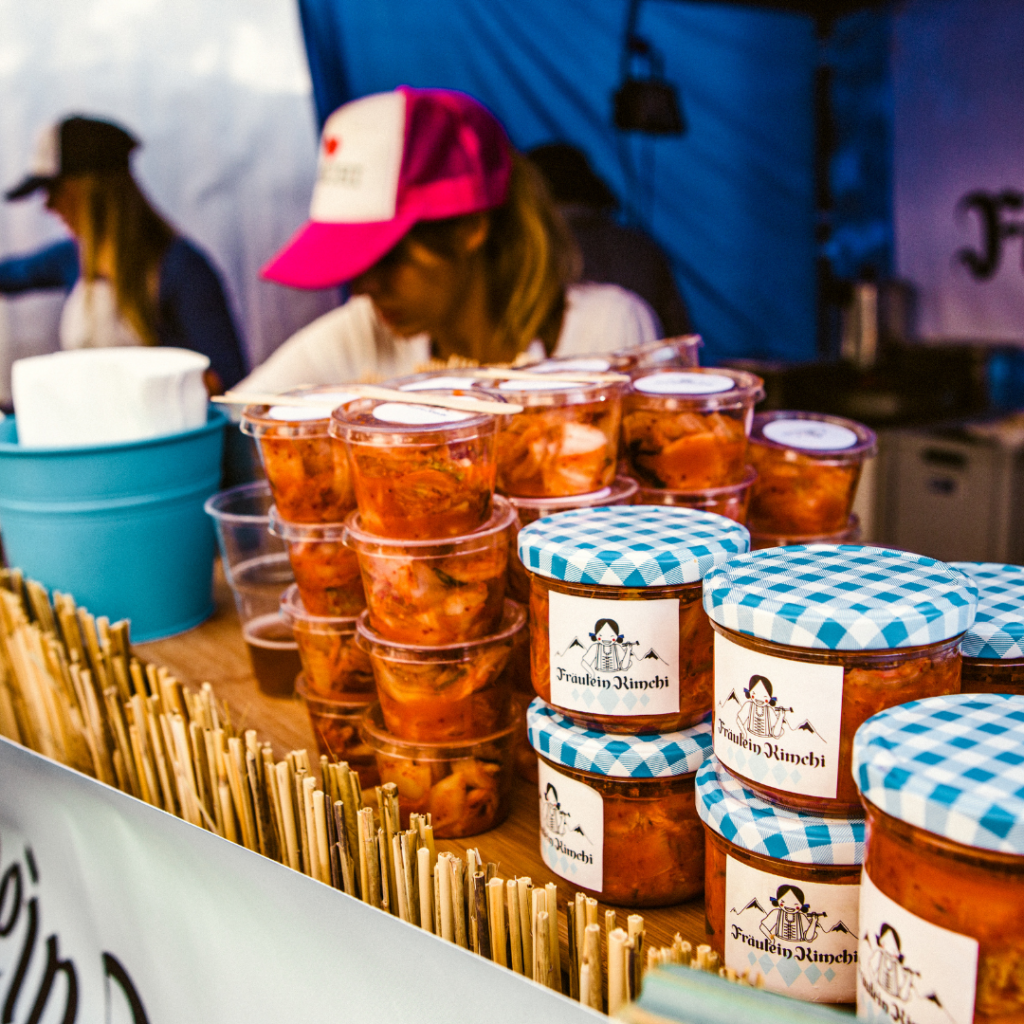
How Moms are Making Money with Home-Based Food Businesses
If you fancy yourself a baker, or you simply enjoy making food for others, you can make money from home in the Cottage Food Industry.
It’s simple. Bake cookies. Sell them. However, until recently the simple act of making cookies at home and selling them was anything but easy, and in fact, was not even legal in several states. But all that is changing thanks to passionate makers and bakers.
In recent years, cottage food advocates and grassroots organizations have been working hard, encouraging state lawmakers from coast-to-coast to improve or enact cottage food laws.
One such organization is the C.O.O.K Alliance-
“We’ve been working to advocate for the recognition of home cooking as dignified and socially invaluable work since 2014. We’ve legalized the sale of home cooked food by passing two California laws and have helped thousands of cooks make money serving their neighbors by building the largest platform for entrepreneurial home cooks.”
To learn more about starting a cottage food business, Mary & Heather, share an overview in this podcast episode titled, Kitchen Dough.
What is Cottage Food?
Turning Homemade Food into Homespun Business
If you’re new to the term Cottage Food you’re not alone. Here’s a quick definition:
A Cottage Food business is a business operated by a person who produces or packages non-potentially hazardous food in a home kitchen.
Cottage food operations are allowed to produce certain non-potentially hazardous foods. These are foods that do not support the rapid growth of bacteria that would make people sick when held outside of refrigeration temperatures.
-California Department of Public Health

Simply put, cottage food is homemade for sale; it can be produced in a home kitchen and sold to the public. Cottage foods are not required to be prepared in a commercial kitchen. They are considered “non-potentially hazardous” foods and, therefore, pose a low risk to people’s health. This simply means that a home cook can’t just make whatever they want in their home kitchen and sell it. Every state has its own list of approved cottage foods and every state controls what a home cook is allowed to make, bake and sell.
Note: It’s important to understand the cottage food industry is state regulated.
Cottage Food Laws
The Cottage Food Industry is state regulated, meaning each state has its own set of rules and regulations when it comes to selling food made in a home kitchen. Before launching a cottage food business, it’s important to understand the cottage food laws in your state.
If you’re interested in learning more about the laws in your state, you can simply do a Google search for cottage food laws. Additionally, Forrager.com is a great resource for getting the latest updates on cottage food legislation. It’s managed by a cottage food business owner and advocate, David Crabill.

What’s been great to observe during the past several years is that new and improved cottage food laws are creating new local industries, and new opportunities for moms, retirees, immigrants, full-time and part-time workers with a dream and surprisingly, the earliest of adopters are entrepreneurial-minded-millennials who have a passion for sustainable local food.
To learn more about cottage food laws, tune into this episode of Kitchen Dough.
A Bit About Making & Selling Cottage Food
In most states, Cottage Food Operators (CFO) must sell direct-to-consumer. You make it; you sell it to the customer. Usually, a CFO will sell their product from their house, farm, a farmers’ market or a similar location.
According to the USDA, there were 8,713 farmers markets listed in USDA’s National Farmers Market Directory. This is a 0.21 percent increase from 2016. https://www.ams.usda.gov/local-food-directories/farmersmarkets
In addition to the increasing number of farmers’ markets, a lineup of new laws taking effect across the nation is fueling the cottage food industry. The new and revised cottage food laws are making it easier and more affordable for home cooks to start businesses from their home kitchens.
Affordability is probably the single greatest thing about being able to start a cottage food business from home. The cottage food laws make it legal and, therefore, more affordable for a mom to start a food business without breaking the bank. No longer do moms have to go through the trouble and the expense of finding and renting a commercial kitchen. It also gives busy moms the ability to test their ideas and test if the food industry is the right fit for them. It also gives a mom the chance to make a little extra dough on the side without having to leave the comfort of her own home.
Learn How you Can Make Money From Your Kitchen!
Powered by RedCircle
A Baker’s Dozen Reasons to Start a Food Business from Home
Here are just some of the reasons why moms are considering turning their dough into cash. Below is a short list of some of the top reasons why. Also, be sure to tune into this episode of Kitchen Dough, to learn more about why moms are starting their ovens and firing up their stoves.
- Fulfill a Dream: If you’ve always dreamed of being in the food business, the cottage food industry is potentially a great way to start. And, you can get started today!Share a Recipe: A lot of cottage food startups got their jumpstart with a treasured family recipe.
2. Share a Culture: Food is one of the best ways to introduce people to the tastes and traditions of different cultures. Food helps us engage with the past so that we can be rooted for the future.
3. Work from Your Home Kitchen: Cottage food laws make it possible to enter the food industry without having to spend a lot of money on commercial kitchen rentals.
4. Set Your Own Schedule: Freedom!
5. Help Your Local Economy: Local businesses attract local consumers and keep dollars within your local community.
6. Connect with Local People: Food unites us. Food starts conversations, creates connection and strengthens bonds. Building a business around a community is definitely satisfying.
7. Fulfill a Market Void: The cottage food market gives food starters an opportunity to fill a market void and gauge the possibility for traction.
8. Pay the Bills: There is money in cooking. The transaction of selling food helps feed your family. But, like most ventures, cooking is not a get-rich-quick-kind-of-venture. It’ll take time to build your business and that’s when the “Joy” factor will play an important role. It’ll be a lot easier to swallow the difficulties you’re inevitably going to encounter if you’re enjoying the journey. It’s also important to note that, in most states, there are literally caps on how much you can make in a cottage food business. So, before you jumpstart your food venture, be sure to check into what kind of money you’ll be allowed to make under your state’s cottage food license. Also, noteworthy in many jurisdictions, there are different classes of licenses. Homework is important. Do your research. We suggest starting with the Harvard Food Law & Policy Clinic Guide.
9. Work with Loved Ones: Cottage businesses, by virtue of operating out of home, often involve working with family and friends.
10. Cultivate Your Creativity: Creating a food product takes a creative soul. Beyond the recipe, there is the presentation, the packaging, the marketing and being creative when it comes to finding new ways to sell.
11. There is Joy in Cooking. There is joy in the creative satisfaction of taking ingredients and making something that nourishes and/or pleases others. If you love being in the kitchen and it brings you joy, then a cottage food business is perhaps one of your callings.
12. Promote better living through better food: Food made the way grandma made it. What’s better than that?!
To catch more cottage food buzz, be sure to tune into the podcast Kitchen Dough, Making Money from Your Home Kitchen.
Credits
California’s Approved Cottage Food List:
https://www.cdph.ca.gov/Programs/CEH/DFDCS/CDPH%20Document%20Library/FDB/FoodSafetyProgram/CottageFood/ApprovedCFList.pdf
List of Farmers’ Markets in the United States: https://www.ams.usda.gov/local-food-directories/farmersmarkets
“Local Food Directories: National Farmers Market Directory.” Local Food Directories: National Farmers Market Directory | Agricultural Marketing Service, www.ams.usda.gov/local-food-directories/farmersmarkets.
“Farmers Markets and Direct-to-Consumer Marketing.” Farmers Markets and Direct-to-Consumer Marketing | Agricultural Marketing Service, www.ams.usda.gov/services/local-regional/farmers-markets-and-direct-consumer-marketing.
https://www.chlpi.org/wp-content/uploads/2013/12/FINAL_Cottage-Food-Laws-Report_2013.pdf
